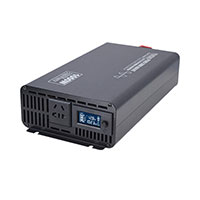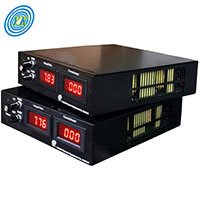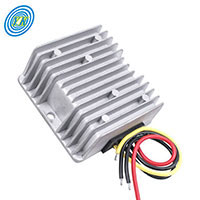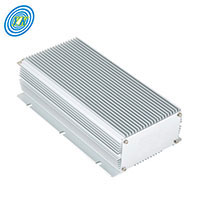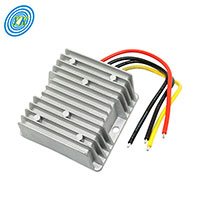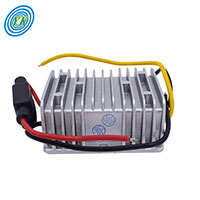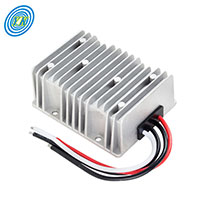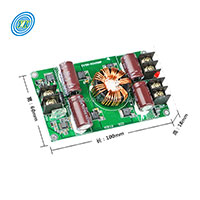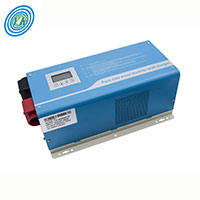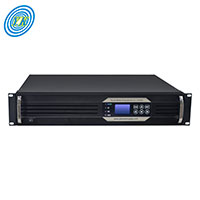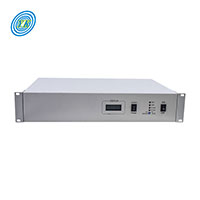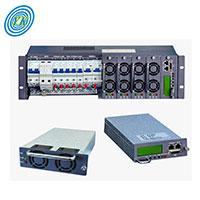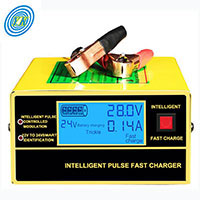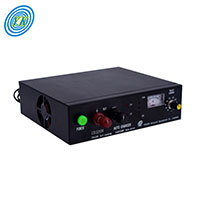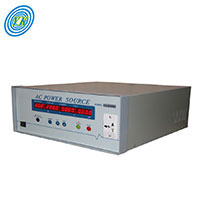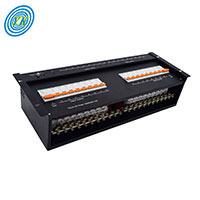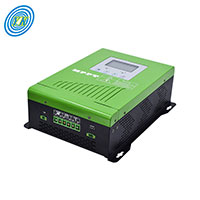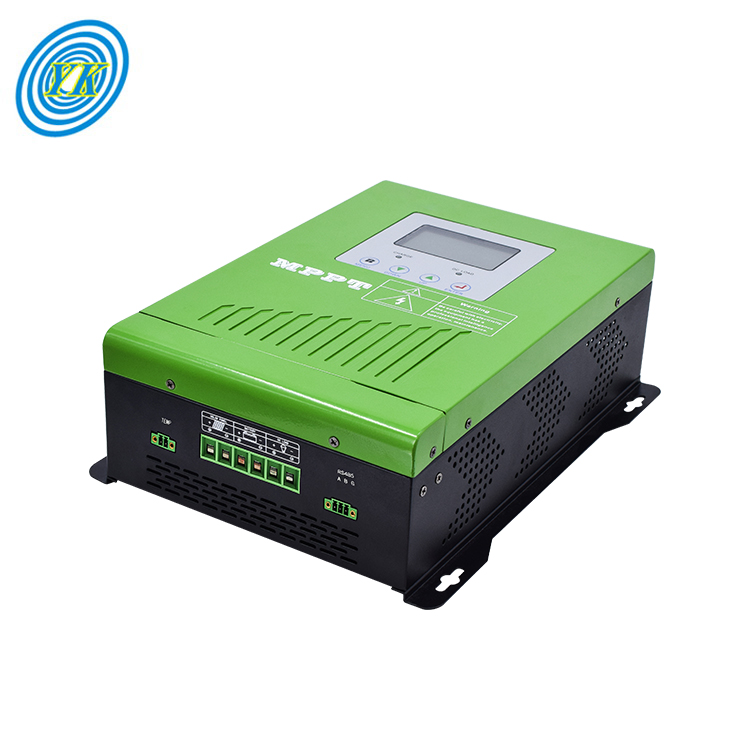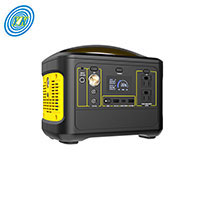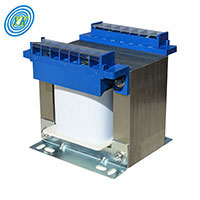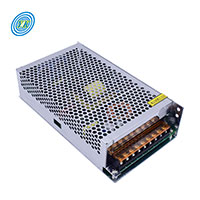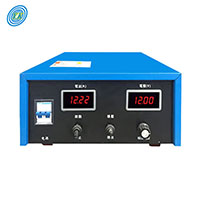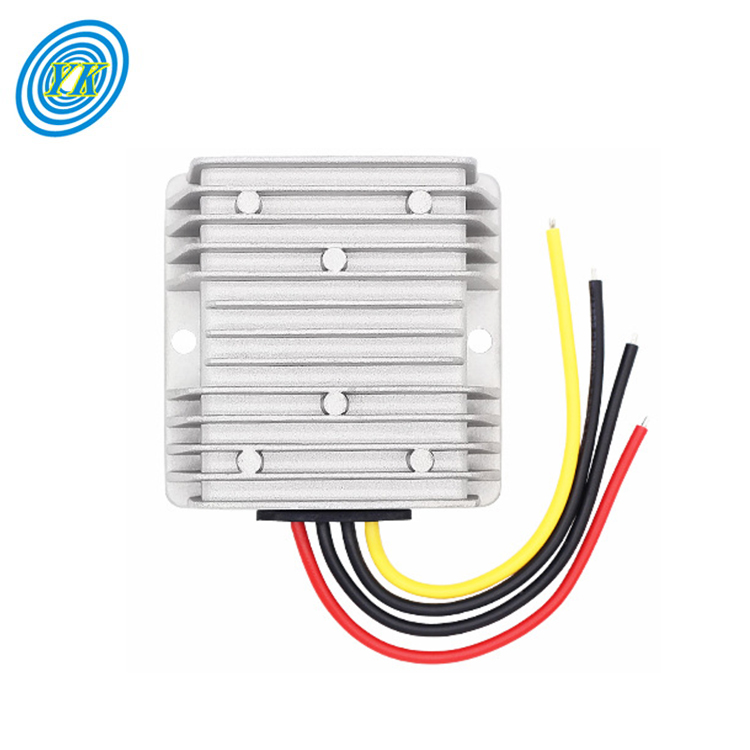
DC Converters: Technology, Applications, and the Role of YUCOO in the Global Market
Click: 739 Date: 12/06/2023 10::36::24 AM
DC Converters: Technology, Applications, and the Role of YUCOO in the Global MarketUnderstanding the Various Types of DC Converters: Buck, Boost, Inverting, Non-Inverting, and LinearDC converters are electronic devices that convert direct current (DC) from one voltage level to another. They are essential in many electronic systems to provide a suitable power supply. Here are some of the most common types of DC converters:Buck Converter: Also known as a step-down converter, a buck converter reduces the input voltage to a lower level. It is efficient and widely used in power management solutions. The circuit of a buck converter typically includes a diode, an inductor, a switch, and a capacitor.Boost Converter: Opposite to a buck converter, a boost (step-up) converter increases the input voltage to a higher level. It is useful in applications such as battery-operated devices where the battery voltage needs to be boosted to power certain components.Inverting Converter: An inverting converter, also known as a negative output converter, changes the polarity of the input voltage. It is often used in operational amplifiers and other analog circuits.Non-Inverting Converter: A non-inverting converter maintains the same polarity as the input voltage while changing its magnitude. It can function as either a step-up or step-down converter.Linear DC Converter: Unlike the switched-mode converters mentioned above, a linear DC converter uses linear regulation to provide a stable output voltage. While it offers advantages such as low noise and high precision, it is less efficient and generates more heat.Each type of DC converter has its own advantages, disadvantages, and preferred applications. The choice of converter depends on the specific requirements of the electronic system.The Technological Advancements and Efficiency of DC ConvertersDC converters have undergone significant technological advancements over the years, leading to improved efficiency, compactness, and reliability. Here's a look at some of the key advancements and the efficiency of DC converters:Switching Technology: Modern DC converters often use switching technology, specifically in Switched-Mode Power Supply (SMPS) units. This technology involves the rapid switching on and off of the power supply to regulate the output voltage. It results in high efficiency, reduced size, and lighter weight compared to traditional linear regulators.Digital Control: The advent of digital control in DC converters has enabled finer control over the output voltage and current. This leads to greater stability, improved efficiency, and the ability to respond to changes in input and load conditions more quicklyGaN and SiC Semiconductors: The use of Gallium Nitride (GaN) and Silicon Carbide (SiC) semiconductors in DC converters has improved efficiency and thermal performance. These materials can handle higher voltages and temperatures compared to traditional silicon, resulting in smaller, more efficient convertersSynchronous Rectification: Synchronous rectification is a technique used in DC converters to improve efficiency. It replaces the diode used in traditional converters with a MOSFET, reducing energy losses and improving efficiencyIn terms of efficiency, it's important to note that while switching converters like buck, boost, and inverting converters offer high efficiency (often 80-95%), they can generate more noise. On the other hand, linear DC converters, while less efficient (typically 40-70%), generate less noise and provide a cleaner output, making them suitable for sensitive electronic devices. The choice between these converters depends on the specific requirements of the application.With these advancements, DC converters continue to evolve, providing more efficient and reliable solutions for a wide range of applications.Designing and Implementing DIY Projects with DC ConvertersDesigning and implementing DIY projects with DC converters can be a rewarding experience. Whether you're making a portable charger, a solar-powered system, or a custom power supply for a specific device, DC converters are essential components. Below are steps to guide you through the process:Identify the Requirements: Determine the input and output voltage requirements of your project. This will guide the choice of the DC converter. For example, if you're designing a project that requires stepping up the voltage, a boost converter would be suitable.Choose the Right DC Converter: Based on your requirements, choose the appropriate DC converter. Consider factors such as efficiency, size, cost, and the manufacturer's reputationDesign the Circuit: Draw a schematic diagram of the circuit, including the DC converter and any other necessary components like capacitors, resistors, and inductorsAssemble the Components: Using a breadboard or a printed circuit board (PCB), assemble the components according to your schematic diagramTest the Circuit: Test your circuit using a multimeter or oscilloscope to ensure it's working as expected. Make any necessary adjustments to ensure the output voltage and current meet your project's requirementsImplement the Project: Once everything is working correctly, implement the project in its intended setting. This could be installing a DC converter in a solar panel system, an electric vehicle, or a portable power supplyRemember, safety should be your top priority when working with electrical and electronic components. Always double-check your connections and ensure the power is off when making adjustments to the circuit.With these steps, you can successfully design and implement a DIY project using DC converters. Whether you're a hobbyist or a professional, working with DC converters can be a great way to learn more about electronics and power systems.Applications of DC Converters in Solar Panels and Electric VehiclesDC converters play a crucial role in both solar panels and electric vehicles, enabling these systems to operate more efficiently and effectively. Here's how:Solar Panels:Maximum Power Point Tracking (MPPT): DC converters are used in MPPT controllers, which are designed to extract the maximum possible power from the solar panels. The voltage output of solar panels varies with light intensity and temperature. An MPPT controller, using a DC-DC converter, adjusts the input voltage to achieve the maximum power output.Voltage Regulation: Solar panels often produce voltage that is not suitable for direct use or storage (in batteries). DC converters (like buck or boost converters) are used to step down or step up the voltage to the required levelGrid-Tied Systems: In grid-tied solar systems, DC-AC converters (inverters) are used to convert the DC output of the solar panels into AC, which is compatible with the grid and most household appliances.Electric Vehicles (EVs):Power Management: DC converters are used in EVs to convert the high voltage from the battery pack to a lower voltage to power the vehicle's electronic systems, such as lights, audio system, and HVAC.Battery Charging: During regenerative braking, the electric motor acts as a generator and produces electricity. A DC-DC converter is used to step down this voltage to a level suitable for charging the batteryInverter Input: The traction inverter in an EV, which drives the electric motor, requires a stable DC input. A DC-DC converter ensures that the input to the inverter is maintained at the required level, irrespective of the battery's state of charge.By enabling efficient power conversion and management, DC converters are essential to the functioning and performance of solar panels and electric vehicles.Assessing the Global DC Converter Market: Key Players, Pricing, and ReviewsThe global DC converter market is a dynamic and competitive industry, with a variety of products catering to various applications such as consumer electronics, automotive, renewable energy, and more. Here's an overview:Key Players: The market is populated by numerous manufacturers, both established and emerging. Some of the prominent players include Texas Instruments, ON Semiconductor, STMicroelectronics, Infineon Technologies, and YUCOO. YUCOO, with over 20 years of experience in the industry, is known for its high-quality converters and has a strong global presence.Pricing: The price of DC converters varies significantly based on factors such as power rating, efficiency, type (buck, boost, inverting, non-inverting), and the reputation of the manufacturer. Basic converters can cost a few dollars, while high-power, high-efficiency models can cost several hundred dollars. It's crucial to balance cost with the requirements of the specific application.Reviews: Reviews are an excellent way to gauge the performance and reliability of DC converters. Customers often share their experiences regarding the converter's efficiency, durability, and customer service of the manufacturer. YUCOO, for instance, has received positive feedback for its range of converters and its commitment to customer satisfaction.Market Trends: The DC converter market is expected to grow in the coming years, driven by increasing demand for energy-efficient devices, the proliferation of renewable energy, and the growth of electric vehicles. Innovations in converter technology, such as digital power control and advanced semiconductor materials, are also influencing the market dynamics.When assessing the global DC converter market, it's important to consider these factors and stay informed about the latest trends and developments. This will enable you to make informed decisions, whether you're a buyer, a manufacturer, or an investor in the market.YUCOO: A Pioneer in the DC Converter Manufacturing IndustryYUCOO is a leading manufacturer in the DC converter industry, renowned for its extensive experience and commitment to quality. Here's an overview of YUCOO's presence in the industry:Experience and Expertise: With over 20 years of experience, YUCOO has developed a deep understanding of the DC converter market. This expertise allows them to produce high-quality converters that meet the evolving needs of various industries.Wide Range of Products: YUCOO offers a wide range of DC converters, including buck, boost, inverting, and non-inverting converters. This diverse product portfolio enables them to serve a broad spectrum of applications, from consumer electronics and automotive systems to renewable energy solutions.Global Presence: YUCOO's products are sold globally, demonstrating their ability to meet international standards and regulations. Their strong global presence also testifies to their reliable customer service and after-sales support.Customer Satisfaction: YUCOO has garnered a reputation for delivering high-quality products, which is reflected in the positive reviews from their customers. They are appreciated for their product reliability, efficiency, and the company's commitment to customer satisfaction.Innovation and Technology: YUCOO continues to innovate in the DC converter industry, integrating the latest technologies to improve the efficiency and performance of their products. They are committed to providing energy-efficient solutions that meet the demands of today's power-hungry devices and systems.In conclusion, YUCOO is a pioneer in the DC converter manufacturing industry, with a strong commitment to quality, innovation, and customer satisfaction. Their extensive experience and wide range of products make them a reliable choice for DC converter needs.
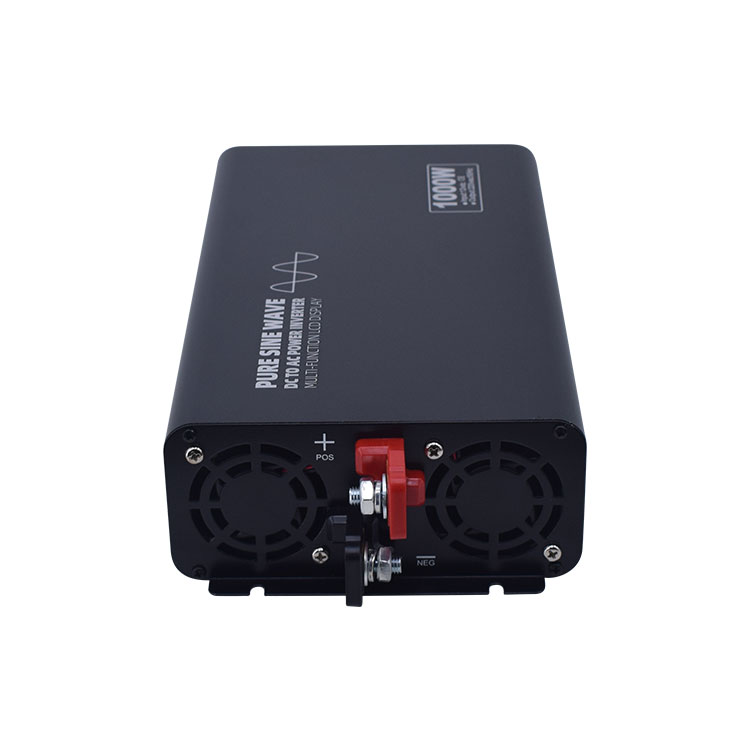
Exploring the Versatility and Efficiency of Inverters: A Deep Dive into YUCOO’s Inverter Solutions
Click: 741 Date: 12/05/2023 1::56::28 PM
Exploring the Versatility and Efficiency of Inverters: A Deep Dive into YUCOO's Inverter SolutionsUnderstanding Different Types of Inverters: From Solar to AutomotiveSolar Inverters: Solar inverters are a crucial component in any solar power system. They convert the variable direct current (DC) output of a photovoltaic (PV) solar panel into alternating current (AC), which can be fed into a commercial electrical grid or used by a local, off-grid electrical network. Solar inverters also ensure the solar system's optimal performance and safety.Wind Inverters: Wind inverters, similar to solar inverters, convert the DC electricity generated by wind turbines into AC electricity. They are specifically designed to handle the variable and fluctuating nature of the electricity generated by wind power.Industrial Inverters: Industrial inverters are used in various industries to convert DC power (often from batteries or fuel cells) into AC power, which is needed for most types of industrial equipment. These inverters are designed to be robust and reliable, capable of withstanding harsh industrial environments.Marine Inverters: Marine inverters are used on boats and ships to convert the DC power from the vessel's battery into AC power for use with appliances and other onboard equipment. They are specially designed to be resistant to moisture and corrosion, which are common in marine environments.Automotive Inverters: Automotive inverters are used in electric vehicles (EVs) to convert the DC power from the vehicle's battery into AC power. This AC power is used to drive the electric motor and other accessories in the vehicle. Automotive inverters are compact, efficient, and designed to withstand the vibrations and temperature variations inside a vehicle.Each of these inverters is uniquely crafted to meet the demands of their respective fields, ensuring they function optimally under specific conditions. Whether it's handling the fluctuating power output in wind inverters or resisting corrosive environments in marine inverters, these devices are tailored to their specific needs.The Evolution of Inverter Technology and Its EfficiencyThe journey of inverter technology has been marked by continuous improvements aimed at enhancing efficiency and reliability. Initially, inverters were relatively large and inefficient, but technological advancements have led to the development of smaller, more efficient, and more reliable units.Early Stages: In the early stages, inverter technology was based on electromechanical systems that used motors and generators or switches. These inverters were bulky and had low efficiency.Introduction of Electronic Inverters: The introduction of electronic inverters brought about a significant improvement in efficiency. These inverters used vacuum tubes or solid-state devices like transistors to convert DC to AC. They were more reliable, smaller, and more efficient than their electromechanical counterparts.Microprocessor Era: The advent of microprocessors and digital technology revolutionized inverter technology. Microprocessors allowed for precise control of the inverter output, improving both the quality of the AC output and the overall efficiency of the inverter. This era also saw the development of different types of inverters like pure sine wave and modified sine wave inverters.Modern Inverters: Modern inverters have benefited from advancements in semiconductor technology, leading to the development of power inverters that are compact, yet capable of handling high power levels. Today, we have inverters that can convert power with efficiencies above 90%. Modern inverters also come with advanced features like MPPT (Maximum Power Point Tracking) for solar inverters, which further increases their efficiency by optimizing the power output from solar panels.Future of Inverter Technology: The future of inverter technology lies in further improving efficiency, reducing size, and integrating smart features. Developments in materials science, such as the use of wide-bandgap semiconductors like Silicon Carbide (SiC) and Gallium Nitride (GaN), promise to deliver inverters that are even more efficient, smaller, and capable of operating at higher temperatures.Thus, the evolution of inverter technology has been a story of continuous improvement, with a strong focus on enhancing efficiency and reliability. As technology continues to advance, we can expect these trends to continue, leading to even more efficient and reliable inverters in the future.YUCOO: A Leading Manufacturer in the Inverter IndustryYUCOO: A Pioneer in the Inverter Industry With a rich history spanning over 20 years, YUCOO has established itself as a trusted and leading manufacturer in the inverter industry. The company's longevity is a testament to its commitment to quality, innovation, and customer satisfaction. YUCOO's expertise is recognized globally, and its products are utilized in various applications worldwide.YUCOO's Diverse Range of Inverter Products YUCOO offers a diverse range of inverter products, catering to a wide array of needs. Its portfolio includes inverters for various sectors like solar, wind, industrial, marine, and automotive applications. This extensive product range allows YUCOO to serve a wide variety of customers, each with unique power conversion requirements.Solar and Wind Inverters In the renewable energy sector, YUCOO's solar and wind inverters play a crucial role. They efficiently convert the DC power generated from solar panels and wind turbines into usable AC power, contributing to the global shift towards sustainable energy.Industrial, Marine, and Automotive Inverters For the industrial, marine, and automotive sectors, YUCOO offers robust and reliable inverters designed to withstand challenging conditions. Industrial inverters are built for durability, marine inverters for resistance against moisture and corrosion, and automotive inverters for compactness and efficiency.Innovation and Efficiency YUCOO's focus on innovation is evident in its product line. The company invests heavily in research and development, continually seeking ways to increase the efficiency and reliability of its inverters. This commitment to innovation has resulted in products known for their superior performance and longevity.Customer Satisfaction Lastly, YUCOO places a high priority on customer satisfaction. The company not only provides high-quality products but also ensures excellent customer service. YUCOO's team is known for its technical expertise and readiness to assist customers with their inverter needs.In conclusion, YUCOO's extensive experience, diverse product range, commitment to innovation, and focus on customer satisfaction have earned it a prominent position in the inverter industry. With its continued efforts, YUCOO is set to remain a leading player in this field.Inverter Market Trends and the Role of YUCOOCurrent Trends in the Inverter Market:Growth of Renewable Energy: The rise of renewable energy sources like solar and wind power is driving the demand for inverters. As more homes and businesses opt for sustainable energy solutions, the need for high-quality inverters to convert and manage this power is increasing.Electric Vehicle Revolution: The surge in electric vehicle (EV) adoption is another trend positively impacting the inverter market. Automotive inverters, key components in EVs, convert DC power from the battery to AC power for the electric motor and other systemsSmart Inverters: There's a growing interest in smart inverters that can communicate with other devices, provide advanced grid support functions, and handle energy management tasks. These inverters are becoming increasingly important for integrating distributed energy resources like solar panels into the grid.YUCOO's Role in Current Trends:YUCOO is well-positioned to capitalize on these trends. Its wide range of inverters caters not only to traditional industrial applications but also to growing sectors like renewable energy and electric vehicles. Furthermore, YUCOO's commitment to innovation and quality aligns with the market's demand for smart and efficient inverters.Future Trends in the Inverter Market:Increased Efficiency and Smaller Sizes: Future trends indicate a push towards even more efficient inverters. Advancements in semiconductor technology, such as the use of wide-bandgap materials like Silicon Carbide (SiC) and Gallium Nitride (GaN), promise to deliver smaller, more efficient, and more heat-resistant inverters.Integration of AI and IoT: The integration of Artificial Intelligence (AI) and the Internet of Things (IoT) in inverters is expected to grow. These technologies can enhance the functionality of inverters, providing better energy management, predictive maintenance, and seamless integration with other smart devicesEnergy Storage: As renewable energy adoption grows, so does the need for energy storage. Inverters that can manage and optimize the use of energy storage systems will be in high demand.YUCOO's Position in Future Trends:With its strong focus on research and development, YUCOO is poised to keep pace with these future trends. The company's ongoing efforts to improve product efficiency and functionality, along with its ability to adapt to new technologies, make it a strong contender in the future inverter market. Whether it's integrating AI and IoT technologies or developing solutions for energy storage, YUCOO is well-prepared to meet the evolving demands of the inverter market.Installation, Maintenance, and Safety of Inverters: The YUCOO WayThe installation process of an inverter can vary depending on its type and application. However, YUCOO ensures that their inverters are designed for easy and straightforward installation. They provide detailed manuals and guides that walk users through the installation process step by step. Furthermore, YUCOO's customer support is always ready to assist with any installation queries.Maintenance of Inverters:YUCOO's inverters are designed for minimal maintenance. They are built with high-quality components that ensure longevity and reliability. However, like all electronic equipment, regular checks and maintenance can help prolong the lifespan of the inverter and maintain its efficiency. This can include cleaning, checking for loose connections, and ensuring proper ventilation. YUCOO provides clear maintenance instructions with each of their inverters and offers support for any maintenance-related concerns.Safety of Inverters:Safety is a paramount concern when dealing with inverters. YUCOO's inverters are designed with several safety features to protect both the device and the user. These can include protections against overloads, short circuits, overheating, and reverse polarity. Additionally, YUCOO's inverters are designed to meet international safety standards, providing extra peace of mind for users.The YUCOO Way:YUCOO's approach to installation, maintenance, and safety demonstrates their commitment to customer satisfaction and product quality. They ensure their inverters are user-friendly, reliable, and safe to use. By providing clear instructions and excellent customer support, YUCOO makes the process of installing and maintaining an inverter as smooth as possible. Their focus on safety, both in product design and user guidance, further showcases their dedication to delivering high-quality, reliable inverter solutions.Exploring Specific Inverter Types: Grid-Tied, Off-Grid, Hybrid, and MoreGrid-Tied Inverters: Grid-tied inverters are designed to feed power into the electrical grid. They are commonly used in solar power systems where excess power generated by solar panels is sent back to the grid. YUCOO offers a range of grid-tied inverters that are efficient, reliable, and compliant with grid regulations.Off-Grid Inverters: Off-grid inverters are used in systems that are not connected to the electrical grid, such as remote power systems or standalone solar power systems. They convert DC power from batteries into AC power for use in appliances. YUCOO provides robust and efficient off-grid inverters suitable for a variety of off-grid applications.Hybrid Inverters: Hybrid inverters combine the features of grid-tied and off-grid inverters. They can feed power into the grid, store excess power in batteries for later use, and provide power during grid outages. YUCOO's hybrid inverters are designed for versatility and reliability, offering a comprehensive power solution for users.Micro Inverters: Micro inverters are a type of inverter used in solar power systems where each solar panel has its own dedicated inverter. They optimize the power output of each individual panel, improving the overall efficiency of the system. YUCOO's micro inverters are known for their high efficiency and durability.String Inverters: String inverters are used in solar power systems where solar panels are arranged in series, forming a 'string'. These inverters convert the combined DC output of the string into AC power. YUCOO offers a variety of string inverters suitable for different system sizes and configurations.Central Inverters: Central inverters are large inverters used in big solar power installations. They convert a large amount of DC power from many solar panels into AC power. YUCOO's central inverters are designed for high power output and reliability, making them ideal for large-scale solar power systems.Power Inverters: Power inverters are general-purpose inverters that convert DC power from a battery into AC power for running various appliances. YUCOO's power inverters are highly efficient, reliable, and come in a range of power ratings to suit different needs.Frequency Inverters: Frequency inverters, also known as variable frequency drives, are used to control the speed of AC motors by varying the frequency of the power supplied to the motor. YUCOO offers frequency inverters that provide precise control, high efficiency, and extended motor life.In summary, YUCOO caters to a wide variety of inverter types, each designed for specific applications. Regardless of the type, YUCOO ensures that all their inverters meet high standards of efficiency, reliability, and safety.
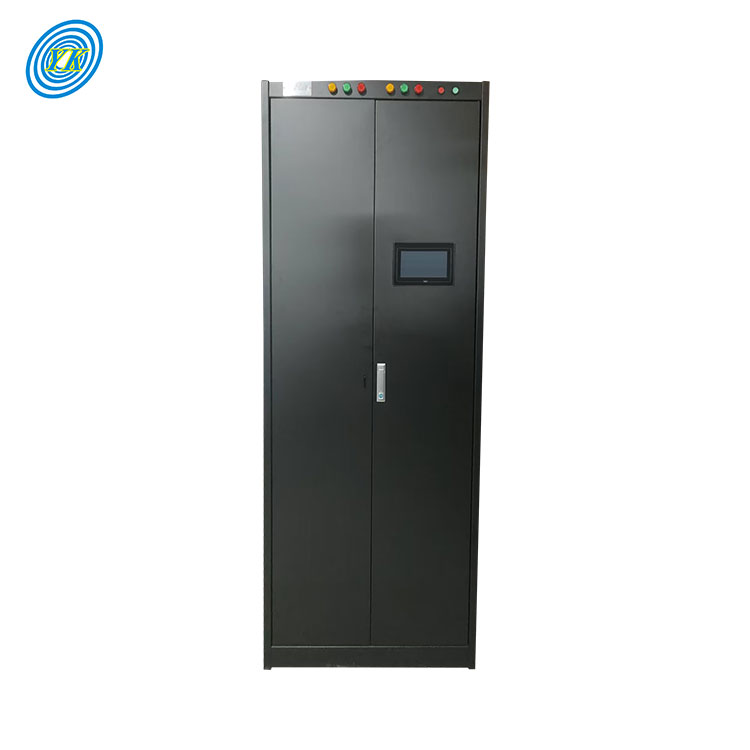
Click: 668 Date: 12/04/2023 11::06::09 AM
Comprehensive Guide to Power Distribution Units: YUCOO's PDU Products in Power Management, Quality, Safety, and RedundancyUnderstanding Power Distribution Units: A Deep Dive into YUCOO's PDU ProductsPDUs are a critical component in data centers, computer rooms, and any other environment where electronic equipment is used. They are responsible for distributing electrical power to multiple devices, ensuring that each device receives the appropriate amount of power to function correctly. PDUs can be classified into different types such as Rack PDUs, Basic PDUs, Metered PDUs, Monitored PDUs, and Switched PDUs, each with its unique features and applications.YUCOO, with its extensive experience in the PDU industry, offers a range of PDU products that cater to different needs and applications. Their PDUs are designed with features like automatic transfer switch (ATS), power load balancing, and intelligent power distribution, ensuring that power is distributed evenly and efficiently across all connected devices.One of the key features of YUCOO's PDUs is their high power density, which allows them to power a large number of devices in a small space. This is particularly beneficial in high-density environments like data centers, where space is at a premium. YUCOO's PDUs are also network-grade, meaning they are designed to operate reliably in a networked environment.Another important aspect of YUCOO's PDUs is their focus on energy efficiency. They are designed to minimize energy waste, which not only reduces costs but also contributes to environmental sustainability. YUCOO's PDUs also come with power monitoring features, allowing users to keep track of power usage and identify any potential issues.In conclusion, YUCOO's PDU products offer a comprehensive solution for power distribution in various environments. With their high power density, network-grade design, and focus on energy efficiency, they are a reliable choice for any data center or computer room. Whether you're looking for a basic PDU for a small office or a high-density PDU for a large data center, YUCOO has a PDU product that can meet your needs.Power Management: Exploring YUCOO's PDU Solutions for Enhanced EfficiencyPower management is a critical aspect of any system that uses electronic equipment. It involves controlling the power distribution to different devices to ensure optimal performance while minimizing energy waste. YUCOO's PDUs are designed with advanced features that enhance power management efficiency.One of the key features of YUCOO's PDUs is their Automatic Transfer Switch (ATS). An ATS is a device that automatically switches the power supply from one source to another when the primary source fails. This feature ensures that power is always available, even in the event of a power failure, thereby enhancing the system's reliability and efficiency.Another feature that enhances power management efficiency is power load balancing. This feature distributes the power load evenly across all connected devices, preventing any one device from drawing more power than it needs. This not only ensures that each device operates optimally but also helps to prevent overheating and potential damage to the devices.YUCOO's PDUs also incorporate intelligent power distribution, which uses software algorithms to manage power distribution based on the power needs of each device. This feature allows for more efficient use of power and can help to reduce energy costs.In addition to these features, YUCOO's PDUs come with power monitoring capabilities. This allows users to keep track of power usage, identify any potential issues, and take corrective action if necessary. This feature is particularly useful in large data centers, where power usage can be complex and difficult to monitor.In conclusion, YUCOO's PDU solutions offer a comprehensive approach to power management, with features that enhance power distribution efficiency, prevent power waste, and ensure system reliability. Whether you're managing a small office or a large data center, YUCOO's PDUs can help you achieve efficient power management.Power Quality and Safety: YUCOO's PDUs Ensuring Reliable Power SupplyPower quality refers to the condition of the electrical power supplied to a device. It is a critical factor in the performance of electronic equipment, as poor power quality can lead to malfunction, increased energy costs, and potential damage to the equipment. YUCOO's PDUs are designed to ensure high power quality by providing a stable and consistent power supply to connected devices.One of the key features of YUCOO's PDUs that contributes to power quality is their surge protection. Surge protection devices, such as transient voltage suppressors (TVS) and uninterruptible power supplies (UPS), protect electronic devices from voltage spikes and other forms of electrical noise that can damage the devices. YUCOO's PDUs come equipped with these devices, ensuring that the power supplied to the devices is always of good quality.Another aspect of power quality that YUCOO's PDUs address is power factor. Power factor is a measure of how effectively the power is being used. A power factor of 1 means that the power is being used efficiently, while a power factor less than 1 means that the power is being wasted. YUCOO's PDUs are designed to optimize power factor, ensuring that power is used as efficiently as possible.In terms of safety, YUCOO's PDUs are designed with electrical safety in mind. They come with features such as overcurrent protection and short-circuit protection, which prevent overheating and potential damage to the devices. Furthermore, YUCOO's PDUs are compliant with international safety standards, ensuring that they are safe to use in any environment.In conclusion, YUCOO's PDUs play a crucial role in ensuring reliable power supply by maintaining power quality and ensuring safety. With their advanced features and focus on electrical safety, they provide a reliable solution for power distribution in any environment.Power Redundancy: YUCOO's PDUs for Uninterrupted Power SupplyPower redundancy is a critical aspect of any system that relies on a continuous power supply. It involves having backup power sources that can take over in the event of a power failure, ensuring that the system can continue to operate without interruption. YUCOO's PDUs are designed with advanced features that enhance power redundancy.One of the key features of YUCOO's PDUs that contributes to power redundancy is their Automatic Transfer Switch (ATS). An ATS is a device that automatically switches the power supply from one source to another when the primary source fails. This feature ensures that power is always available, even in the event of a power failure, thereby enhancing the system's reliability and availability.Another feature that enhances power redundancy is the redundancy of power supply. YUCOO's PDUs come with multiple power input options, allowing for the connection of multiple power sources. In the event of a power failure, the PDU can automatically switch to a backup power source, ensuring that the power supply is always uninterrupted.YUCOO's PDUs also come with features such as power load balancing and intelligent power distribution. These features ensure that power is distributed evenly across all connected devices, preventing any one device from drawing more power than it needs. This not only ensures that each device operates optimally but also helps to prevent power waste, which can lead to power supply issues.In conclusion, YUCOO's PDU solutions offer a comprehensive approach to power redundancy, with features that enhance power supply reliability, prevent power supply issues, and ensure system availability. Whether you're managing a small office or a large data center, YUCOO's PDUs can help you achieve power redundancy and ensure an uninterrupted power supply.Data Center Power Distribution: YUCOO's PDUs for High Density EnvironmentsData centers, due to their high density of servers and other electronic equipment, require a robust and efficient power distribution system. YUCOO's PDUs are designed to meet these requirements, offering high power density, network-grade design, and advanced features that ensure efficient power distribution.One of the key features of YUCOO's PDUs that makes them suitable for data centers is their high power density. This allows them to power a large number of devices in a small space, which is particularly beneficial in high-density environments like data centers where space is at a premium.Another feature that makes YUCOO's PDUs ideal for data centers is their network-grade design. Network-grade PDUs are designed to operate reliably in a networked environment, which is crucial in a data center where servers and other devices are connected to a network.YUCOO's PDUs also come with advanced features such as power load balancing and intelligent power distribution. These features ensure that power is distributed evenly across all connected devices, preventing any one device from drawing more power than it needs. This not only ensures that each device operates optimally but also helps to prevent overheating and potential damage to the devices.In addition to these features, YUCOO's PDUs come with power monitoring capabilities. This allows users to keep track of power usage, identify any potential issues, and take corrective action if necessary. This feature is particularly useful in large data centers, where power usage can be complex and difficult to monitor.In conclusion, YUCOO's PDUs offer a comprehensive solution for power distribution in high-density environments like data centers. With their high power density, network-grade design, and advanced features, they ensure efficient power distribution and contribute to the overall performance and reliability of the data center.
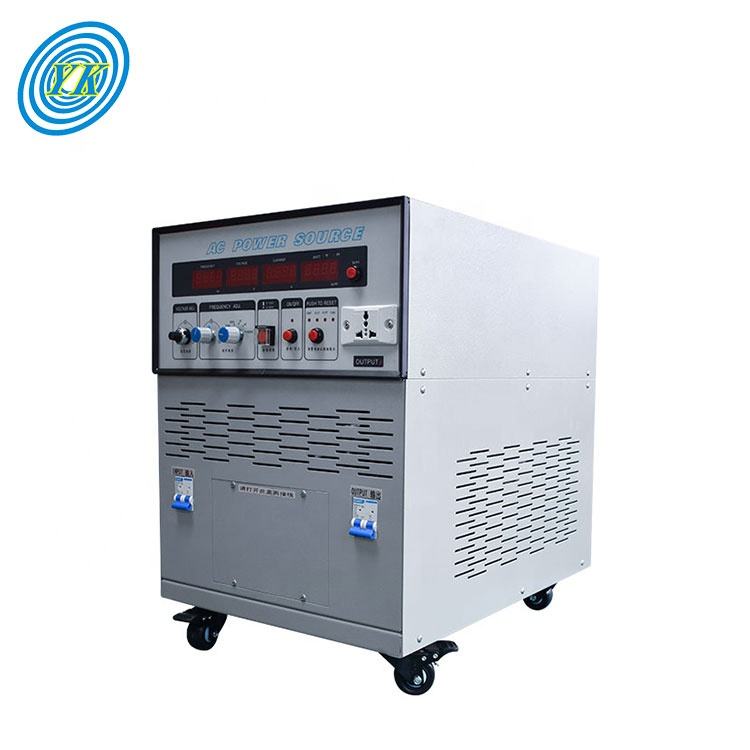
Exploring the Application and Impact of YUCOO’s Variable Frequency Power Supply in Modern Industries
Click: 746 Date: 12/02/2023 2::14::16 PM
Exploring the Application and Impact of YUCOO’s Variable Frequency Power Supply in Modern IndustriesUnderstanding YUCOO's Variable Frequency Drive (VFD): Power Electronics and Pulse Width Modulation (PWM)YUCOO's Variable Frequency Drive (VFD) is a type of power electronics device that controls the speed and torque of an electric motor by varying the input frequency and voltage. This is achieved using a method called Pulse Width Modulation (PWM).Power Electronics in YUCOO's VFDPower electronics is a key technology in YUCOO's VFD. It involves the conversion and control of electrical power with the help of electronic devices. This technology is used in the VFD to convert the incoming AC power to DC, and then back to a variable-frequency AC power. This conversion process is crucial in controlling the speed of the electric motor connected to the VFD.Power electronics in YUCOO's VFD also allows for smooth and precise control of the voltage and frequency supplied to the motor, leading to improved motor performance, reduced energy consumption, and extended motor life.Pulse Width Modulation (PWM) in YUCOO's VFDPWM is a modulation technique used in YUCOO's VFD to generate variable voltage and frequency output. It works by varying the width of the pulses in a pulse train, which controls the total power delivered to the load. In a VFD, PWM is used to create a simulated AC waveform at variable frequency to drive the motor.PWM in YUCOO's VFD allows for precise control of motor speed and torque, resulting in high performance and energy efficiency. It also reduces harmonic distortion, which can lead to motor heating and reduced lifespan.In conclusion, power electronics and PWM are two key features of YUCOO's VFD that contribute significantly to its overall performance and efficiency. By using these technologies, YUCOO's VFD can provide precise and efficient control of motor speed and torque, leading to improved performance, reduced energy consumption, and extended motor life.YUCOO's Inverter and Power Converter: Bridging DC and AC for Energy EfficiencyYUCOO's inverter and power converter play a critical role in energy efficiency by effectively transforming Direct Current (DC) into Alternating Current (AC), and vice versa. This conversion process is crucial in various applications, including renewable energy systems, electric vehicles, and industrial machinery.YUCOO's Power ConverterThe power converter in YUCOO's systems is a power electronics device that can convert electrical energy from one form to another. In the case of a Variable Frequency Drive (VFD), the power converter first transforms the incoming AC power into DC. This process is known as rectification.The power converter in YUCOO's VFD is designed for high efficiency, which means that it minimizes energy loss during the conversion process. This leads to lower energy consumption, which can result in significant cost savings for users.YUCOO's InverterAfter the power converter has transformed the AC power into DC, the inverter then steps in. The inverter in YUCOO's VFD is responsible for converting the DC power back into AC. However, this is not just a simple conversion. The inverter uses a technique called Pulse Width Modulation (PWM) to create a simulated AC waveform at a variable frequency. This allows the VFD to precisely control the speed and torque of the motor.YUCOO's inverter is designed for high efficiency and precision. It reduces harmonic distortion, which can lead to motor heating and reduced lifespan. Moreover, it allows for precise control of motor speed, resulting in improved performance and energy savings.In conclusion, YUCOO's inverter and power converter are crucial components that bridge DC and AC power, contributing significantly to the overall energy efficiency of their systems. By efficiently converting power and precisely controlling motor speed, they help to improve performance, reduce energy consumption, and extend equipment lifespan.Applications of YUCOO's Frequency Converter in Industrial Automation and Renewable EnergyYUCOO's frequency converter, often known as a Variable Frequency Drive (VFD), has wide-ranging applications in both industrial automation and renewable energy sectors. It plays a critical role in power generation, energy conservation, and overall system efficiency.Industrial AutomationIn the field of industrial automation, YUCOO's frequency converter is used to control the speed and torque of electric motors, which drive various types of machinery. The ability to precisely control the speed of motors can significantly improve the efficiency and performance of the automated processes.For instance, in a conveyor belt system, the speed of the belt can be accurately controlled to match the production speed. This not only improves the efficiency of the production line but also reduces energy consumption as the motor only consumes power as needed.Renewable EnergyIn renewable energy systems, YUCOO's frequency converter plays a crucial role in power generation and energy conservation.For example, in wind turbines, the speed of the wind can vary greatly. A frequency converter can adjust the generator's speed to match the wind speed, maximizing the energy captured from the wind. This not only increases the efficiency of power generation but also reduces mechanical stress on the wind turbine, thereby extending its lifespan.Similarly, in solar power systems, the frequency converter can be used to convert the DC power generated by the solar panels into AC power, which is more commonly used in homes and businesses. The conversion process is designed to be highly efficient, minimizing energy loss and maximizing the use of the generated power.In conclusion, YUCOO's frequency converter has significant applications in industrial automation and renewable energy sectors. Its ability to precisely control motor speed and efficiently convert power forms is critical for improving system performance, conserving energy, and enhancing power generation.YUCOO's Power Supply in HVAC Systems and Electric Vehicles: A Step Towards Green EnergyYUCOO's power supply, particularly its Variable Frequency Drive (VFD), finds significant applications in Heating, Ventilation, and Air Conditioning (HVAC) systems and electric vehicles. These applications play a key role in promoting green energy and adhering to energy conservation standards.HVAC SystemsIn HVAC systems, YUCOO's VFD is used to control the speed of the motors that drive the fans and pumps. Traditional HVAC systems often run these motors at full speed and use mechanical systems to control the airflow or water flow. This method is inefficient and consumes a lot of energy.By using YUCOO's VFD, the motor speed can be precisely controlled to match the demand. This means the motor only consumes as much power as needed, significantly reducing energy consumption. This not only leads to cost savings but also helps in reducing the environmental impact, promoting the use of green energy.Electric VehiclesIn electric vehicles (EVs), YUCOO's power supply is used in the powertrain to control the speed of the electric motor. The VFD converts the DC power from the battery into AC power to drive the motor. The speed and torque of the motor can be precisely controlled by varying the frequency and voltage of the AC power.This precise control leads to efficient use of the battery power, extending the driving range of the EV. Furthermore, during regenerative braking, the motor acts as a generator and produces DC power. The VFD can convert this power back to AC, feeding it back to the grid or using it to charge the battery. This not only improves the energy efficiency of the EV but also contributes to energy conservation.In conclusion, the use of YUCOO's power supply in HVAC systems and electric vehicles is a significant step towards promoting green energy and adhering to energy conservation standards. By providing efficient and precise control of motor speed, YUCOO's VFD helps in reducing energy consumption, lowering environmental impact, and promoting the use of renewable energy sources.YUCOO and the Future: Smart Grid, IoT, and Industry 4.0As we look towards the future, YUCOO's variable frequency power supply is well-positioned to capitalize on emerging trends and technologies such as smart grid, Internet of Things (IoT), and Industry 4.0.Smart GridSmart grid technology aims to improve the efficiency, reliability, and sustainability of electricity distribution. YUCOO's power supply can play a significant role in this regard. Its Variable Frequency Drives (VFDs) can help in managing and controlling the power flow in the grid more efficiently. They can adjust the power consumption of the connected devices based on the demand and supply conditions in the grid, thereby improving the overall efficiency of the grid. Furthermore, they can support grid stabilization by providing reactive power compensation and harmonic filtering.Internet of Things (IoT)IoT involves connecting devices and systems over the internet to collect and analyze data for better decision-making. YUCOO's power supply can be integrated with IoT technology to provide real-time monitoring and control of the power parameters. This can lead to improved energy efficiency, predictive maintenance, and better system performance. For example, in an industrial setup, an IoT-enabled YUCOO power supply can monitor the energy consumption of the machines and adjust their operation to reduce energy consumption and cost.Industry 4.0Industry 4.0 refers to the fourth industrial revolution, characterized by the integration of digital technologies with industrial processes. YUCOO's power supply fits perfectly into this vision. Its VFDs can be integrated with advanced control systems for precise control of motor speed and torque, leading to improved process efficiency and productivity. Furthermore, the data collected from the VFDs can be used for predictive maintenance, reducing downtime and maintenance costs.In conclusion, YUCOO's variable frequency power supply is well-suited to capitalize on the future trends and technologies like smart grid, IoT, and Industry 4.0. By integrating with these technologies, YUCOO's power supply can contribute to more efficient and sustainable power distribution, improved system performance, and smarter industrial processes.
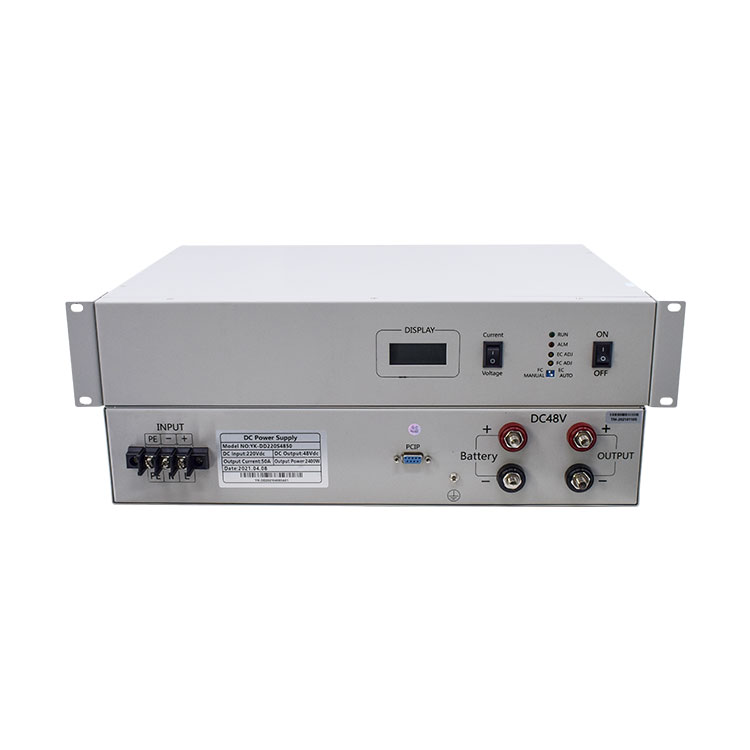
Click: 566 Date: 12/01/2023 11::23::15 AM
Comprehending the Intricacies of Power Supply: A Deep Dive into DC Power Conversion, Power Electronics, and the Influence of YUCOO's TechnologyUnderstanding The Basics of Direct Current (DC) Power SupplyDirect Current (DC) power supply is a critical component in many electronic devices. It functions to convert the Alternating Current (AC) from the mains power supply into DC, which is needed by most electronic circuits to function.A DC power supply typically includes key components such as a transformer, rectifier, filter, and a regulator. The transformer steps down the input AC voltage, the rectifier converts AC to DC, the filter smooths the pulsating DC from the rectifier, and the regulator maintains a constant DC output voltage.There are two main types of DC power supplies: linear and switching power supplies.Linear Power SupplyLinear power supplies function by transforming the input AC voltage to a suitable level and then converting it to DC voltage. This is done through a simple design that uses a transformer, rectifier, and a filter. These power supplies are known for their low output ripple and noise, reliable performance, and simple design. However, they are less efficient and generate more heat compared to switching power supplies.Switching Power SupplySwitching power supplies, on the other hand, use a high-frequency switch (transistor) to convert the input AC to DC. They are more complex in design but offer higher efficiency, lighter weight, and smaller size. They are ideal for applications that require efficient energy use and compact size, such as laptops and mobile devices.Understanding these basics of DC power supply is essential for choosing the right power solution for different applications, and it sets the foundation for exploring more complex topics in power electronics.Exploring the Role of Converters in Power ElectronicsConverters play a pivotal role in power electronics, a branch of electronics that deals with the conversion and control of electric power. They primarily function to convert one form of electrical energy to another, making it suitable for various applications. The two most common types of converters are DC-DC converters and AC-DC converters.DC-DC ConvertersDC-DC converters are used to convert DC voltage levels from one level to another. They are a fundamental component in many electronic devices, including laptops, electric vehicles, and renewable energy systems. These converters are essential for energy-efficient operation and optimal performance. For instance, they allow electric vehicles to convert the high voltage from the battery to lower voltages needed for different components, such as the car's lighting system.AC-DC ConvertersAC-DC converters, also known as rectifiers, are used to convert AC voltage into DC voltage. They are widely used in power supplies for electronic devices, including televisions, computers, and mobile chargers. The AC-DC converters enable these devices to utilize the AC power from the main supply and convert it into DC power required for their operation.The Role of YUCOO's DC Power Conversion in Renewable Energy and Electric Vehicle ChargingThe role of converters in power electronics is crucial, as they enable the efficient functioning of electronic devices by ensuring the power is in the appropriate form and level. Understanding the operation of these converters is fundamental to the design and operation of power electronic systems.DC power conversion is integral in renewable energy systems and electric vehicle charging, and YUCOO's technology plays a significant role in these areas.Renewable Energy SystemsRenewable energy systems, such as solar panels and wind turbines, often generate DC power. This power needs to be converted to AC for compatibility with the grid or household appliances. However, certain systems like battery storage require DC power, necessitating DC-DC conversion. YUCOO's DC power conversion technology plays a vital role here. Its efficient DC-DC converters can manage the power flow between different parts of a renewable energy system, ensuring optimal performance and energy efficiency.Electric Vehicle ChargingElectric vehicles (EVs) require efficient charging systems for their high-capacity batteries. These batteries operate on DC power, so charging directly with DC can be more efficient and faster. YUCOO's DC power conversion technology is crucial in this scenario. Their advanced DC-DC converters can handle the high power levels required for fast EV charging while ensuring safety and efficiency.YUCOO's DC power conversion technology stands out due to its high efficiency, reliability, and adaptability to various power levels and voltage requirements. These attributes make it a valuable asset in the growing fields of renewable energy and electric vehicle technology.The Impact of Power Supply Design and Manufacturing on Energy EfficiencyThe design and manufacturing of power supplies have a significant impact on their energy efficiency. Key factors like power factor correction, voltage regulation, and adherence to standards and safety measures all contribute to the overall efficiency of a power supply.Power Factor CorrectionPower factor correction (PFC) is a technique used to improve the efficiency of power delivery. It's aimed at making the load appear purely resistive, which minimizes the phase difference between the current and voltage, thereby reducing power loss. Efficient power supplies often incorporate active PFC to enhance energy efficiency.Voltage RegulationVoltage regulation is another critical aspect of power supply design. It ensures the output voltage remains constant despite changes in the input voltage or load. Good voltage regulation contributes to the efficient operation of the electronic device, preventing performance issues and potential damage caused by voltage fluctuations.Standards and Safety MeasuresAdherence to power supply standards and safety measures also plays a vital role in energy efficiency. Standards like the 80 PLUS certification require power supplies to be 80% or more efficient at 20%, 50%, and 100% of rated load, which helps ensure energy-efficient operation. Safety measures like overvoltage, overcurrent, and short-circuit protection also contribute to efficient operation by preventing conditions that could lead to energy loss or damage.The design and manufacturing processes of power supplies, therefore, play a crucial role in determining their energy efficiency. By focusing on aspects like power factor correction, voltage regulation, and compliance with standards and safety measures, manufacturers can produce power supplies that deliver power more efficiently, reducing energy waste and contributing to a more sustainable future.Trends and Developments in the Power Supply IndustryThe power supply industry is continually evolving, driven by advancements in technology and changing market demands. Some of the current trends and developments include the growth of battery technology, the rising demand for uninterruptible power supplies (UPS), and the increased focus on energy efficiency and renewable energy.Battery TechnologyBattery technology is advancing rapidly, driven by the growing demand for energy storage solutions and electric vehicles. Newer battery technologies, such as lithium-ion and solid-state batteries, offer higher energy density, longer lifespan, and improved safety, making them suitable for various applications. This growth in battery technology is expected to drive further innovations in the power supply industry.Uninterruptible Power Supplies (UPS)The market for uninterruptible power supplies (UPS) is also growing. UPS systems provide emergency power to a load when the main power source fails, making them critical for industries where power continuity is crucial, such as healthcare, data centers, and telecommunications. With increasing digitalization and reliance on data, the demand for reliable UPS systems is expected to increase, driving growth in this sector of the power supply industry.Energy Efficiency and Renewable EnergyThere is an increased focus on energy efficiency and renewable energy in the power supply industry. With growing environmental concerns and regulatory pressures, manufacturers are developing more efficient power supplies that consume less energy and produce less waste heat. Similarly, the rise of renewable energy has led to the development of power supplies capable of handling the unique challenges posed by renewable energy sources, such as variable output and the need for energy storage.These trends indicate a promising future for the power supply industry, with opportunities for innovation and growth in various sectors. The industry's ability to adapt to these trends and meet changing market demands will be key to its continued success.
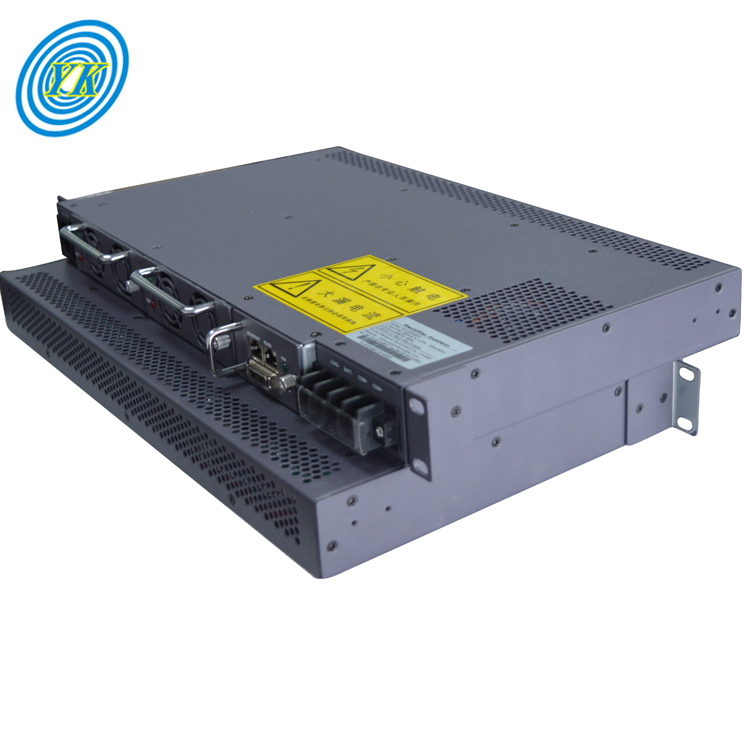
Click: 692 Date: 11/30/2023 10::50::51 AM
An In-depth Analysis of YUCOO's Telecommunications Power System: Innovations, Applications, and Market TrendsExploring the Features and Applications of YUCOO's Telecommunications Power SystemIn exploring the features and applications of YUCOO's Telecommunications Power System, it's important to first understand that a telecommunications power system is integral to the operation of any telecom network. It provides the necessary power supply for telecom equipment to function reliably and efficiently.YUCOO's Telecommunications Power System stands out for its innovative features. These include:High Efficiency: YUCOO's power systems are designed for high efficiency, which can result in significant energy savings. This is a critical feature as energy efficiency is a major concern in telecommunication networks.Reliability: YUCOO's power systems are characterized by their reliability. They are designed to provide consistent power supply, minimizing the risk of network downtime which can be costly and disruptive.Flexibility: YUCOO's power systems are versatile and can be adapted to a variety of telecom applications. They can support different voltage levels and are compatible with various types of telecom equipment.Advanced Technology: YUCOO employs advanced technology in their power systems, such as uninterrupted power supplies (UPS) and power distribution units (PDU). These technologies ensure continuous power supply and optimal power distribution within the telecom network.The applications of YUCOO's Telecommunications Power System are broad and varied. They are used in a wide range of telecom networks, from mobile networks to broadband networks. They are also employed in data centers, where a reliable power supply is critical.Furthermore, YUCOO's power systems can be integrated into renewable energy systems, contributing to the growing trend of green telecommunications. They also play a role in telecom energy management, helping to monitor and control energy usage in telecom networks.In summary, YUCOO's Telecommunications Power System serves the telecommunications industry by providing a reliable, efficient, and flexible power supply. Its advanced features and wide-ranging applications make it a crucial component in modern telecom networks.The Role of Power Supply in Telecom Energy Management: A Detailed Study of YUCOO's SolutionsPower supply plays a critical role in telecom energy management. It's the backbone of any telecommunications system, ensuring that all systems and services operate without interruption. Energy management, on the other hand, aims to optimize the use of power in these systems, reducing energy consumption and costs while maintaining system reliability and performance.YUCOO's power supply solutions contribute significantly to telecom energy management in several ways:Efficient Power Conversion: YUCOO's power supply solutions include advanced power converters and rectifiers. These devices convert AC power from the grid to DC power used by telecom equipment, doing so efficiently to minimize energy loss.Uninterruptible Power Supply (UPS): YUCOO's UPS systems ensure continuous power supply even during power outages, thereby preventing service disruptions. They also regulate the power supply, protecting telecom equipment from power surges and fluctuations that can cause damage and inefficiencies.Power Distribution Units (PDU): YUCOO's PDUs manage the distribution of power to different parts of the telecom network. They allow for efficient power distribution, reducing energy waste and ensuring that all parts of the network receive the necessary power.Battery Backup Systems: YUCOO provides battery backup systems that store energy and provide power during outages. These systems are crucial for maintaining service continuity and reducing the risk of costly downtime.Integration with Renewable Energy Sources: YUCOO's power supply solutions can be integrated with renewable energy sources like solar or wind power. This not only reduces reliance on traditional power sources but also promotes sustainable and green practices in the telecom industry.Energy Efficiency Technologies: YUCOO's power supply solutions feature technologies that improve energy efficiency, such as advanced cooling systems that reduce energy consumption and heat waste.In summary, YUCOO's power supply solutions play a critical role in telecom energy management. They ensure efficient power conversion, distribution, and utilization, promote the use of renewable energy, and enhance system reliability and performance. By doing so, they contribute to a more sustainable and cost-effective telecom industry.Understanding the Importance of Backup Power Systems in Telecommunications: A Focus on YUCOO's InnovationsBackup power systems are essential in telecommunications for maintaining uninterrupted service. They kick in during power outages, providing a continuous power supply and preventing service disruptions that can result in significant revenue loss and customer dissatisfaction.YUCOO's innovations in backup power systems play a crucial role in telecommunications:Battery Backup Systems: YUCOO offers battery backup systems that deliver reliable power during outages. These systems use advanced batteries that have a high energy density, long lifespan, and fast charging capabilities. They're designed to kick in immediately when a power outage occurs, ensuring uninterrupted telecom service.Uninterruptible Power Supply (UPS): YUCOO's UPS systems are another key component of their backup power solutions. These systems not only provide power during outages but also regulate the power supply, protecting telecom equipment from power surges and fluctuations that can cause damage and inefficiencies.Power Management Systems: YUCOO's power management systems monitor the status of the power supply and the backup systems. They can automatically switch to backup power in the event of a power outage and manage the power distribution to ensure all parts of the telecom network receive the necessary power.Integration with Renewable Energy Sources: YUCOO's backup power systems can be integrated with renewable energy sources like solar or wind power. These renewable sources can provide additional power during outages, further enhancing the reliability of the telecom service.Maintenance and Support: YUCOO provides comprehensive maintenance and support for their backup power systems. This includes regular system checks and updates to ensure the systems are always ready to kick in during power outages.In summary, backup power systems are crucial in telecommunications for maintaining service continuity. YUCOO's innovative solutions in this area, from battery backup systems to UPS systems and power management systems, ensure that telecom services remain uninterrupted, even during power outages. This reliability is key to customer satisfaction and the overall success of any telecom service provider.YUCOO's Contribution to Renewable Energy and Energy Efficiency in Telecom Power SystemsThe telecommunications industry is a significant consumer of energy, and as such, there is a growing need for renewable energy and energy efficiency in telecom power systems. YUCOO has made significant contributions in this area.Renewable Energy Integration: YUCOO's telecom power systems can be integrated with renewable energy sources like solar or wind power. This not only reduces reliance on traditional power sources but also lowers carbon emissions, contributing to the fight against climate change. The integration of renewable energy sources also provides an additional layer of reliability, as they can serve as backup power sources during grid outages.Energy-Efficient Design: YUCOO's telecom power systems are designed for energy efficiency. They use advanced power converters and rectifiers that minimize energy loss during power conversion. They also feature efficient cooling systems that reduce energy consumption and heat waste.Energy Management Solutions: YUCOO offers comprehensive energy management solutions that help telecom operators monitor and control their energy usage. These solutions include power distribution units (PDUs) that manage the distribution of power within the telecom network, ensuring that power is used efficiently.Battery Technology: YUCOO's battery backup systems use advanced batteries with high energy density and long lifespan. These batteries can be charged during off-peak hours when electricity costs are lower, and then provide power during peak hours or power outages, contributing to energy efficiency and cost savings.Training and Support: YUCOO provides training and support to help telecom operators implement and manage their energy-efficient and renewable energy solutions. This ensures that operators can maximize the benefits of these solutions.In summary, YUCOO's contributions to renewable energy and energy efficiency in telecom power systems are significant. They offer solutions that not only improve the energy efficiency of telecom networks but also reduce their environmental impact. These efforts are crucial in the transition towards more sustainable telecommunications.The Design, Maintenance, and Regulations of Telecom Power System: A Comprehensive Review of YUCOO's ApproachesThe design, maintenance, and regulatory compliance of telecom power systems are critical aspects of telecommunications infrastructure. YUCOO's approach to these areas is both innovative and comprehensive.Design: YUCOO's telecom power systems are designed with high efficiency, reliability, and flexibility in mind. They employ advanced technologies, such as power converters, uninterruptible power supplies (UPS), and power distribution units (PDU), to ensure continuous and optimal power supply. YUCOO also designs its systems to be compatible with renewable energy sources, contributing to green telecommunications.Maintenance: Proper maintenance is crucial for the longevity and performance of telecom power systems. YUCOO offers comprehensive maintenance services, including regular system checks, updates, and prompt repairs. They also provide training to operators on system management, ensuring optimal operation and longevity of the systems.Regulations: Compliance with regulations is a key aspect of telecom power system management. YUCOO's systems are designed to meet global and local regulatory standards. They ensure their products are compliant with safety and environmental regulations, including those related to energy efficiency and emissions.Innovations: YUCOO continuously innovates its power systems to meet the changing demands of the telecom industry. This includes developing more energy-efficient systems, integrating more renewable energy sources, and improving system reliability and flexibility.Market Trends: YUCOO also stays abreast of market trends in telecom power systems. They understand the growing emphasis on energy efficiency, renewable energy, and system reliability in the industry, and design their products and services to meet these trends.In summary, YUCOO's approach to the design, maintenance, and regulations of telecom power systems is comprehensive and forward-thinking. They not only ensure their systems are efficient, reliable, and compliant with regulations, but also continuously innovate to meet the evolving needs of the telecom industry. This comprehensive approach makes YUCOO a leading provider of telecom power systems.
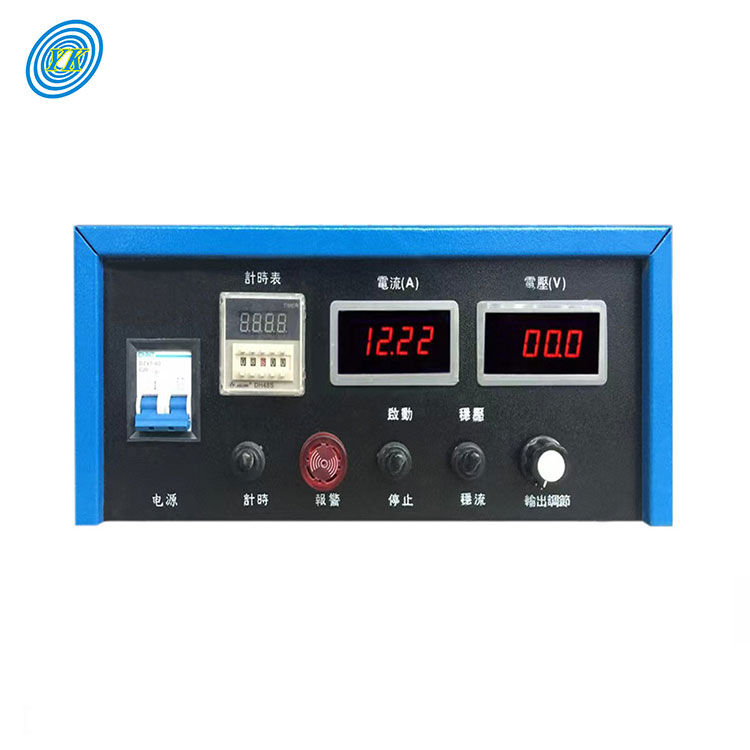
Click: 768 Date: 11/29/2023 09::06::52 AM
YUCOO's Electroplating Power Supply: A Comprehensive Exploration of Technology, Equipment, Processes, and Global ImpactThe Evolution and Impact of Electroplating TechnologyElectroplating technology has evolved significantly over the years. It originated in the early 19th century and has since become an essential process in various industries. Electroplating involves the use of an electric current to deposit a layer of metal onto a surface, providing properties such as corrosion resistance, wear resistance, or aesthetic appeal.In the journey of electroplating technology, YUCOO has played a pivotal role. With over 20 years of experience, YUCOO has developed advanced electroplating power supplies that have significantly enhanced the electroplating process.YUCOO's power supplies have made it possible to control the deposition process more precisely, leading to better quality and consistency of the electroplated layers. Additionally, their power supplies have improved efficiency and reduced energy consumption, contributing to more sustainable industrial practices.YUCOO's innovations in electroplating technology have had a substantial impact on various industries. In the automotive industry, for example, electroplating is used to coat parts with a thin layer of metal to increase their durability and resistance to rust. This has significantly extended the lifespan of automotive parts and reduced the need for replacements, leading to cost savings for manufacturers and consumers alike.In the electronics industry, electroplating is used to deposit thin layers of metals onto components such as connectors, switches, and other conductive parts. YUCOO's power supplies have enabled the production of more reliable and durable electronic components, contributing to the overall performance and longevity of electronic devices.In conclusion, the evolution of electroplating technology, with significant contributions from YUCOO, has had a profound impact on various industries. By enabling the production of more durable, reliable, and efficient products, it has not only improved the quality of goods but also contributed to more sustainable industrial practices.The Role of Electroplating Equipment in the Modern IndustryElectroplating equipment plays a vital role in modern industries. It's used in a wide range of applications, from creating protective coatings to improving the aesthetic appeal of products. The electroplating process depends heavily on the quality and capabilities of the equipment used, and that's where YUCOO's products come into the picture.YUCOO's electroplating equipment, including their advanced power supplies, are designed with precision and efficiency in mind. These power supplies control the amount of electric current that passes through the electroplating solution, which directly impacts the quality of the electroplated layer. By offering precise control, YUCOO's power supplies ensure uniform deposition, leading to consistent and high-quality results.In industries like electronics, automotive, and aerospace, where the quality of each component can significantly impact the overall product performance, the importance of such precision cannot be overstated. For example, in the electronics industry, the connectors, switches, and other conductive parts are often electroplated to enhance their conductivity and resistance to corrosion. YUCOO's power supplies enable the creation of these high-quality components, contributing to the production of more reliable and durable electronic devices.In the automotive and aerospace industries, parts are often electroplated to increase their durability and resistance to wear and tear. With YUCOO's power supplies, these industries can produce components with improved lifespan and performance, leading to safer and more efficient vehicles and aircraft.Moreover, YUCOO's electroplating equipment is designed for efficiency. By optimizing the electroplating process, they help reduce energy consumption and waste production, contributing to more sustainable industrial practices.In conclusion, YUCOO's electroplating equipment plays a crucial role in modern industries. By ensuring the production of high-quality, durable, and efficient products, while also promoting sustainability, they significantly contribute to the success and growth of these industries.Understanding the Electrochemical Process in ElectroplatingElectroplating is essentially an electrochemical process that uses electric current to reduce dissolved metal cations so they form a thin coherent metal coating on an electrode. The process involves three main components: an anode (the material to be plated), a cathode (the metal to be deposited), and an electrolyte solution (which contains the metal ions).In the electroplating process, the part to be plated (the workpiece) is made the cathode (negative electrode) in the electrolytic cell, while the anode (positive electrode) is the metal to be plated. When electric current is supplied by a power source, metal ions from the electrolyte solution are reduced at the cathode and deposited as a metal layer. The anode gradually dissolves to provide a continuous supply of metal ions.This is where YUCOO's power supply systems come in. They provide the direct current necessary for the electroplating process. The quality and characteristics of the plated layer are largely determined by the current density, plating time, and temperature, all of which can be controlled accurately with YUCOO's power supplies.YUCOO's power supply systems are designed for high efficiency and precision. They provide stable and consistent current, ensuring uniform and high-quality metal deposition. They also come with features like over-voltage and over-current protection, enhancing the safety and reliability of the electroplating process.In addition, YUCOO's power supply systems are energy-efficient, reducing the overall energy consumption in the electroplating process. This not only reduces operational costs but also contributes to more sustainable industrial practices.In conclusion, understanding the electrochemical process in electroplating is crucial for achieving high-quality results. With YUCOO's efficient and precise power supply systems, industries can carry out this process more effectively and sustainably.The Significance of Power Supply Systems in ElectroplatingPower supply systems hold a critical role in the electroplating process. They provide the direct current necessary for the reduction of metal ions and their deposition onto the workpiece. The quality of the power supply significantly impacts the quality of the electroplated layer, as it determines the consistency and stability of the current supplied.YUCOO's power supply systems are designed with this critical role in mind. They are built to provide a stable and consistent current, ensuring a uniform and high-quality metal deposition. The power supply systems come with adjustable voltage and current settings, allowing for precise control over the electroplating process. This precision leads to a consistent electroplated layer, enhancing the quality and performance of the electroplated parts.Moreover, YUCOO's power supply systems are equipped with advanced features that enhance their performance and reliability. They come with over-voltage and over-current protection, ensuring the safety of the electroplating process. The systems also have high efficiency, reducing energy consumption and heat generation, thereby contributing to more sustainable and cost-effective electroplating operations.One of the unique benefits of YUCOO's power supply systems is their robust design, built to withstand the harsh conditions often found in industrial settings. They are designed for long-term reliability and durability, reducing the need for frequent maintenance or replacements.In the field of electroplating, where the quality of the final product is directly linked to the consistency of the electrochemical process, the significance of a reliable and efficient power supply system cannot be overstated. YUCOO's power supply systems offer the precision, stability, and reliability needed to achieve high-quality electroplating results consistently.In conclusion, power supply systems are a vital component in the electroplating process. YUCOO's power supply systems, with their unique features and benefits, play a critical role in ensuring the quality and efficiency of electroplating operations in various industries.The Advantages of YUCOO's Electroplating Power Supply in the Global MarketYUCOO's electroplating power supply has carved out a significant presence in the global market, thanks to its innovative features and reliable performance. Its advantages over competitors stem from its commitment to quality, precision, and efficiency, which are critical factors in the electroplating process.Quality and Durability: YUCOO's power supplies are built to last. They are designed to withstand the harsh conditions often found in industrial settings, ensuring long-term reliability and reducing the need for frequent maintenance or replacements. This durability gives YUCOO an edge over competitors whose products may not be as robustPrecision Control: YUCOO's power supplies offer adjustable voltage and current settings, allowing for precise control over the electroplating process. This precision leads to a consistent electroplated layer, enhancing the quality and performance of the electroplated parts. Many competitors' products lack this level of control, making YUCOO's power supplies a preferred choice for industries seeking high-quality electroplating resultsEnergy Efficiency: YUCOO's power supply systems are designed for high efficiency, reducing energy consumption and heat generation. This not only lowers operational costs but also contributes to more sustainable industrial practices. In a world increasingly focused on sustainability, this gives YUCOO a competitive advantageSafety Features: YUCOO's power supplies come with over-voltage and over-current protection, ensuring the safety of the electroplating process. These safety features, while often overlooked, are crucial in preventing accidents and equipment damage, giving YUCOO an edge in the marketGlobal Reach: With its products being used worldwide, YUCOO has a broad global reach. This global presence allows it to understand and cater to the diverse needs of different markets, further solidifying its position in the global electroplating industryIn conclusion, YUCOO's electroplating power supply stands out in the global market due to its quality, precision, efficiency, and safety features. Its understanding of the electroplating process and commitment to innovation make it a strong competitor in the global electroplating industry.
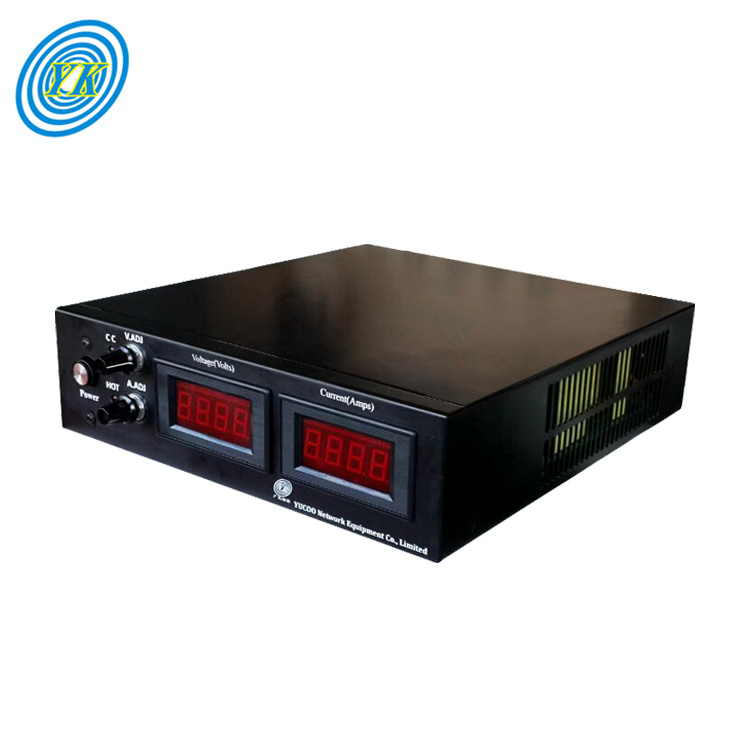
Exploring YUCOO’s Adjustable Power Supply: Features, Design, and Applications
Click: 670 Date: 11/28/2023 2::16::20 PM
Exploring YUCOO's Adjustable Power Supply: Features, Design, and ApplicationsYUCOO's Power Electronics: Emphasizing Adjustable Power Supply FeaturesYUCOO, a leading manufacturer of adjustable power supplies, has been in the industry for over 20 years. Their power electronics are renowned globally for their superior quality and performance. This section will delve into the specifics of YUCOO's power electronics, emphasizing the unique features of their adjustable power supplies.Voltage RangeOne of the key features of YUCOO's adjustable power supplies is their wide voltage range. This allows for greater flexibility in various applications, as users can adjust the output voltage as per their needs. It’s an essential feature for catering to a broad spectrum of power requirements in different scenarios.EfficiencyEfficiency is another strength of YUCOO's adjustable power supplies. They are designed to optimize power usage, meaning they use less energy to provide the same amount of output. This not only makes them environmentally friendly but also cost-effective in the long run. The efficiency of these power supplies is a testament to YUCOO's commitment to sustainable power solutions.ReliabilityReliability is a crucial factor in power electronics, and YUCOO's adjustable power supplies excel in this aspect. They are built to last and designed to perform consistently under varying conditions. Their robust design and high-quality components ensure that they can withstand the rigors of everyday use, providing reliable power whenever it's needed.In conclusion, YUCOO's adjustable power supplies stand out in the power electronics market with their wide voltage range, high efficiency, and reliability. These features make them a preferred choice for diverse applications. As we delve deeper into other aspects of YUCOO's power supplies in the subsequent sections, you will see how these features play a crucial role in their overall design and application.The Power Conversion Process in YUCOO's Adjustable Power SuppliesPower conversion is a critical process in the operation of power supplies, and YUCOO's adjustable power supplies are no exception. This section explores how YUCOO's power supplies handle this process, focusing on AC/DC and DC/AC conversions, power factor correction, and the technologies used to ensure efficient conversion.AC/DC and DC/AC ConversionsAt the heart of YUCOO's adjustable power supplies is the ability to convert between AC and DC power. AC/DC conversion is crucial in many applications, as it allows devices that run on DC power to be powered from AC mains. Conversely, DC/AC conversion is critical in applications where AC power is needed but only DC is available.YUCOO's power supplies are equipped with advanced circuitry that provides smooth and efficient conversion between these two types of power. This ensures that the power supplied is always in the correct form for the end device, regardless of the input power type.Power Factor CorrectionPower factor correction is another important aspect of YUCOO's power conversion process. Power factor is a measure of how effectively incoming power is being used. A high power factor means that more of the incoming power is being converted into useful output power, while a low power factor indicates that a significant amount of power is being wasted.YUCOO's adjustable power supplies include power factor correction technology to optimize the use of incoming power. This not only improves efficiency but also reduces the load on the power source, potentially extending its lifespan.Efficient Conversion TechnologiesYUCOO uses a variety of technologies to ensure efficient power conversion. For instance, their power supplies may use switching technology, which offers high efficiency and allows for smaller, lighter power supplies. They also incorporate various protection features, such as overvoltage and overcurrent protection, to ensure safe and reliable operation.In conclusion, the power conversion process in YUCOO's adjustable power supplies is designed with efficiency, flexibility, and safety in mind. These considerations make them suitable for a wide range of applications, further solidifying YUCOO's position in the power supply market.Designing Power Supplies: A Look at YUCOO's ApproachDesigning power supplies is a complex task that requires a deep understanding of electronics and a keen eye for detail. YUCOO, with its years of experience and expertise, has developed a unique approach to designing their power supplies. This section will examine YUCOO's design philosophy, including their use of switching and linear power supplies, and their considerations for power regulation and safety standards.Switching Power Supplies for EfficiencyYUCOO uses switching power supplies in many of its designs due to their high efficiency. Switching power supplies work by rapidly switching a power transistor between saturation (full on) and cut off (completely off), with the duty cycle modulated to control the output voltage. This approach results in less power loss, making the power supplies more efficient and reducing their heat output.Linear Power Supplies for Low NoiseWhile switching power supplies are known for their efficiency, they can produce a significant amount of electrical noise due to the switching action. For applications where low noise is critical, YUCOO uses linear power supplies. Linear power supplies operate by using a voltage regulator to drop the input voltage to the desired output voltage. This process results in very low noise output, making these power supplies ideal for sensitive applications.Power Regulation and Safety StandardsOne of the key aspects of YUCOO's design approach is their focus on power regulation and adherence to safety standards. YUCOO's power supplies are designed to maintain a steady output voltage regardless of changes in the input voltage or load on the power supply. This is crucial for ensuring the safe and reliable operation of the devices powered by the supply.Moreover, YUCOO's power supplies are designed to meet or exceed all relevant safety standards. This includes protections against overvoltage, overcurrent, and overheating, which ensure the safety of both the power supply and the device it is powering.In conclusion, YUCOO's approach to designing power supplies involves a careful balance between efficiency, noise, power regulation, and safety. This approach, combined with their extensive experience and expertise, results in power supplies that are reliable, efficient, and safe for a wide range of applications.YUCOO in the Power Supply Market: A Manufacturer's PerspectiveYUCOO's journey in the power supply market has been one marked by innovation, quality, and commitment to customer satisfaction. This section provides an overview of YUCOO's position in the power supply market, covering their history, reputation, testing procedures, and their role as a global supplier of adjustable power supplies.HistoryYUCOO has been a player in the power supply market for over 20 years. Their long-standing presence is a testament to their ability to adapt to changing market needs and technological advancements. Over the years, YUCOO has continuously improved their products and expanded their offerings, solidifying their position as a trusted power supply manufacturer.ReputationYUCOO enjoys a strong reputation in the power supply market for their high-quality, reliable, and efficient power supplies. Their adjustable power supplies are particularly well-regarded, known for their wide voltage range, high efficiency, and robust design. This reputation has been built on their commitment to quality and customer satisfaction.Testing ProceduresQuality assurance is a critical aspect of YUCOO's operations. They employ rigorous testing procedures to ensure that their power supplies meet the highest standards of performance and reliability. These tests include load tests, efficiency tests, and safety tests, among others. By ensuring that each power supply passes these stringent tests, YUCOO guarantees that their products can deliver consistent, reliable performance.Role as a Global SupplierYUCOO's power supplies are not just popular in their home country, but are also exported around the world. They have a broad customer base that spans various industries, from electronics manufacturing to industrial automation. As a global supplier, YUCOO is committed to meeting the diverse needs of their international customers, and their adjustable power supplies play a significant role in fulfilling this commitment.In conclusion, YUCOO's position in the power supply market is one of prominence and respect. Their commitment to quality, rigorous testing procedures, and status as a global supplier of adjustable power supplies all contribute to their standing as a leading provider of power supply solutions.Applications of YUCOO's Adjustable Power Supplies: From Industrial to PortableYUCOO's adjustable power supplies are highly versatile, designed to cater to a wide range of applications. This final section discusses some of the key applications of these power supplies, including their use in industrial settings, their high voltage power supplies, and their portable power supplies.Industrial ApplicationsOne of the primary applications of YUCOO's adjustable power supplies is in industrial settings. Industrial environments often have demanding power requirements, and YUCOO's power supplies are designed to meet these challenges. They offer a wide voltage range, high efficiency, and reliable performance, making them well-suited to power a variety of industrial equipment and machinery.High Voltage Power SuppliesSome applications require high voltage power supplies, and YUCOO delivers in this regard as well. Their high voltage power supplies are designed with safety and reliability in mind, providing the necessary power while ensuring that the devices are protected from potential damage due to overvoltage. These power supplies are used in a range of applications, from research and development to testing and manufacturing.Portable Power SuppliesIn addition to their industrial and high voltage power supplies, YUCOO also offers portable power supplies. These are designed to be compact and lightweight, making them ideal for applications that require mobility. Despite their small size, these power supplies do not compromise on performance, offering the same high efficiency and reliability as their larger counterparts.In conclusion, the applications of YUCOO's adjustable power supplies are diverse, ranging from industrial settings to portable applications. Regardless of the application, YUCOO's power supplies deliver consistent, reliable performance, making them a preferred choice for a variety of power supply needs. This versatility, coupled with their commitment to quality and customer satisfaction, is what makes YUCOO a leading manufacturer in the power supply market.
